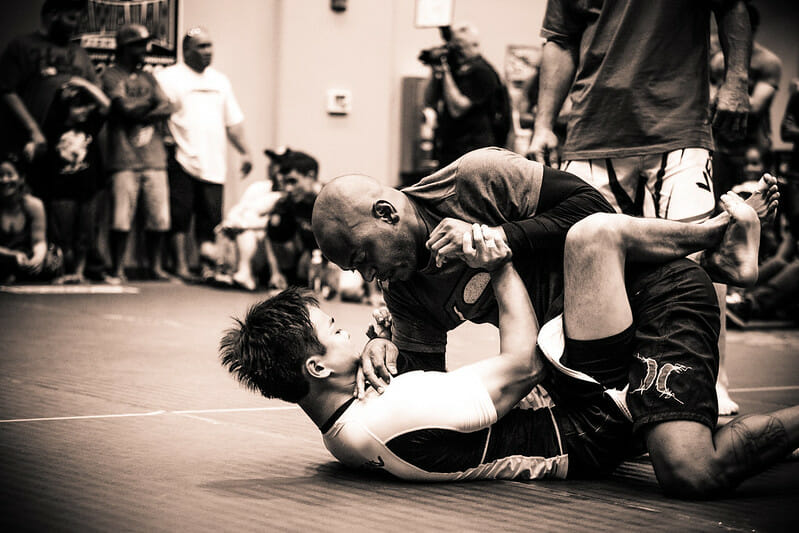
Some parents have aggressive kids. Some parents have nice kids, who behave aggressively sometimes.
Teens, for example, because they are in “the argumentative age”, have more conflicts with their parents and this creates an endless cycle of disciplinary action, which creates arguments, which bring more discipline and then more arguments…
Not all kids know they need to be easy to parent. When they are born, no one tells them they need to do everything their parents expect of them. Or what to do when there are conflicts of expectations.
For example, Mom says the baby needs 3 layers of clothes, because she is cold, and Dad says it is quite warm and one layer is enough. You can guess this was the conflict in our house when the kids were babies. It’s confusing,
Therefore, kids do not behave the way you want them to. At least not always.
Behavior and discipline are major parts of parenting. Some parents in my parenting program define good parenting as “the ability to discipline my children”.
I find this definition a bit hard to live by, but I am convinced that even parents who have an easier definition face difficulties with their kids.
Discipline is not the answer.
Kids and aggressiveness
Research has found interesting things about aggressiveness and children.
- Kids can be aggressive from as early as age 3
- Aggressiveness has nothing to do with gender. Girls and boys are equally aggressive (you’re surprised, aren’t you?)
 One in three kids is aggressive
One in three kids is aggressive- Kids are more aggressive at home than at school
- Aggressive kids have poor communication skills
- Many aggressive kids were hurt by someone or by circumstances
- Many aggressive kids copy aggressive behavior of parents
- Some aggressive kids lack a role model
- Some aggressive kids live in a hostile household
- There is more aggressiveness between siblings who are close in age
- In the early years, aggression is more physical and becomes more verbal with age
- Aggression was found to be associated with poor eating
- Aggression was found to associated with difficulties to adjust
Tips for handling aggressive kids (including teens)
- Make sure your kids eat a healthy diet. Too much sugary food may be the only (yes, the only) cause for aggression. Some kids, including teens, are actually reacting in an aggressive way because of addiction to some kind of food, such as sugar or coke. Make sure they eat plenty of fruits and vegetables.
- Make sure your kids sleep enough. Teenagers want to stay awake longer but as they grow a lot, they need more sleep. Kids, teens and even grown-ups can be extremely aggressive just because they did not have enough sleep the night before. If your teens are spend a night out with friends, notice that their mood changes because of lack of sleep. Talk to them about it and avoid getting into conflicts the morning after. When we are tired, it is hard to think properly.
- If the aggression is not normal, have them checked by a doctor. Being sick and not knowing about it can make kids very irritable. They could be missing some vitamins or other nutrients and that may be causing them to feel uncomfortable and restless. Make sure the doctor checks for allergies to food colors and preservatives.
- A marriage check up may help too. When Mom and Dad fight, the kids may not be able to separate themselves from the situation and feel they are at war too. Teens are especially sensitive to marital conflicts and take sides. Parents who keep a good relationship as a couple reduce behavior problems with their kids without doing anything directly with the kids.
- When you child is being aggressive, tell them you are going away and will be back in 10 minutes. Do not be an audience for aggressive behavior. Give your child time to relax and come back later.
- Because of aggressiveness between siblings close in age, make sure you do not favor one of the kids and help each of your kids find his niche. If you are still planning your family, consider having your kids 3-5 years apart.
- Check your reward and punishment strategies. If you reward aggressiveness or punish expression, you are actually feeding this aggressiveness. Do not give extra attention to aggressive behavior. Never give kids what they want if they try to get it aggressively. Use expression like “You can talk to me only when you are calm”, “In our house, we only reward good behavior” and “If you hurt someone trying to get what you want, you have lost already”.
 Violent TV shows and computer games are among the reasons aggression is increasing. In aggressive periods, limit your kids from watching videos, TV programs or playing games in which people kill or hurt each other.
Violent TV shows and computer games are among the reasons aggression is increasing. In aggressive periods, limit your kids from watching videos, TV programs or playing games in which people kill or hurt each other.- To use a positive approach, reward your kids for telling you what they think and feel and what is happening in their life (even if it is not so pleasant to hear). Remember, your communication with your kids, especially with your teens, is your barometer to find when something is wrong. Encourage your kids to communicate.
- Make sure your kids are not bullied at school. Be tuned to what is happening with their friends and tell them they can always come to you for help. Ask the school for help when your kids are bullied. There are many anti bullying programs running and most schools will do all that they can to take care of it.
- Associate your kids with pleasant, positive role models who can influence your kids in a positive way. Most parents see themselves as role models and do not think they need any more, but in truth, the more positive role models kids have, the better off they are.
- Enroll your kids into an active, energetic sport that will help them divert their aggression towards something useful.
- Find a form of art that your kids are good at and help your kids excel in it. Many art forms are ways for expression and have a calming effect on kids. As they become skillful in their form of art, the aggression will decrease even more.
Aggression for kids is mainly a result of frustration and parents can help greatly in minimizing the frustration by establishing good communication in the house.
Happy communication,
Ronit
|
For another way |
 |
 One in three kids is aggressive
One in three kids is aggressive Violent TV shows and computer games are among the reasons aggression is increasing. In aggressive periods, limit your kids from watching videos, TV programs or playing games in which people kill or hurt each other.
Violent TV shows and computer games are among the reasons aggression is increasing. In aggressive periods, limit your kids from watching videos, TV programs or playing games in which people kill or hurt each other.










